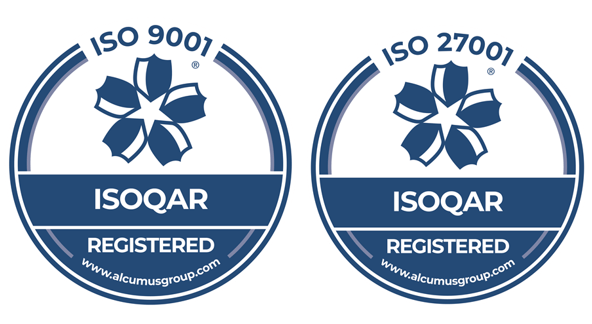Apprentice Addict
So have you been watching The Apprentice? Not a question I thought I’d ever ask on the company blog, but bear with me, it’s leading to something. I have to admit I am something of an Apprentice addict, mainly due to the delicious sense of schadenfreude that comes from watching the contestants try, and fail, at a series of increasingly ridiculous tasks. One of my favourites (well, most memorable) was when the teams were tasked with developing their own mobile app. In 24 hours. With the minimum of research. So, business as usual.
Unsurprisingly, the apps weren’t brilliant (revolving as they did around embarrassing and / or annoying noises), but there was a rather unexpected side-effect we saw at Box UK; a flood of sales calls to our office from people who wanted to ‘knock up an app’ after seeing ‘how easy it was’ on the show. Many of these callers had never considered producing an app before, had done little research or planning, and didn’t really have the budget defined to produce anything of the quality required to convey reputation and capability.
I thought I’d use this post to explain why if you want to be successful you shouldn’t approach app development like an apprentice, and provide some insight into the realities of the market.
You are not on The Apprentice
An obvious reason why most businesses shouldn’t take the Apprentice route is because they can’t; you probably don’t have a development team on permanent stand-by to turn your app around in hours, much less a direct line to major mobile players who can rush your product through the approval process. However, the most important reason why the show doesn’t offer a realistic business model is because they weren’t trying to achieve anything meaningful from their apps, beyond a free download which was likely only used a handful of times (or even fewer). So, how hard is it to create an app that really serves a purpose?
Strategy
Nielsen has reported that iPhone users have an average of 48 apps on their devices, and another report from Localytics suggests that 26% of all apps downloaded in 2010 were used just once. This statistic didn’t matter to the apprentices, but when you’re in charge of proving the ROI of the project to the rest of your organisation, I’m betting that it does. Apps, like other customer touch-points, need to have clearly defined target markets, objectives and success metrics, whether this is an in-app purchase, signing up to receive further information or increased brand awareness and perception. Consider carefully what you want to achieve and how an app could help you do it.
By researching your users, their needs and use contexts (a vital component of any user centred design process), you might even find that an app isn’t the best solution. If very little of your traffic comes from mobile devices a mobile-optimised version of your existing site might be enough; or perhaps you want a cross-platform web app to cut down on development time and fragmentation. Responsive? Native? There are lots of options out there; read our blog post on the mobile revolution to find out more.
User Experience
If you’ve done your homework and have found that a native app is the right choice for you, it’s time to think about the user experience. On The Apprentice the simplicity of the app and the nature of their target audience meant this wasn’t a big issue but I’m betting that the app you want to build consists of more than a user pushing a button to generate a (ahem) hilarious sound effect.
How can you ensure the key user journeys are as intuitive as possible? How do you cater for the unique contexts of mobile? A detailed User Experience Consultancy phase can identify the most important tasks, areas and calls to action of your app based on user and business requirements. Applying this information to craft the structure, layout and functionality will ensure your app meets the specific mobile needs of your users, which can have a huge impact on your conversion rate and, ultimately, the return on your investment.
Development
Now I’m sure everyone understands that the development of an app is not as quick or as easy as it appears in the show, but have you considered the level of planning which needs to go into the production of a successful product? If you want to create a truly engaging, interactive experience native apps offer the perfect opportunity to integrate device-specific features such as geo-location, touch screen and video / audio capabilities, however, it’s natural that adding this level of complexity will require more development time than a simpler application.
You’ll also need to continually test your app on real users, operating on real devices to determine whether you’re on the right track; in the early stages of a project (using basic HTML prototypes or even just paper sketches) making changes is much easier and cheaper than leaving it to when you’re almost ready to release. Make sure that your budget can cover testing time, and accommodate any necessary revisions. The apprentices may have been fast, but real success takes time.
Post-launch
For the apprentices, the challenge ended when the app hit the marketplace, but sadly that’s not the reality of producing an app. In real business situations you can’t just see what sells best over a few hours and then enjoy a day in an F1 car, luxury spa, hot air balloon… a successful, long term mobile strategy requires monitoring, analysis, then ongoing refinements and improvements.
New versions will have to be released to resolve any bugs and respond to user requests, and as you go through this review process you may find yourself updating your wider strategy. Technologies and trends change at an incredibly fast rate in the digital world, and what’s perfect for you now might be irrelevant in a year. You can avoid many of these issues in the research and planning phase, but be prepared to evolve and grow as your users’ demands and expectations change.
Conclusion
In summary, don’t be an apprentice. I don’t mean the buzzword jargon, startling levels of self-belief and reluctance to listen to others, but the candidates’ inability to consider the value of what they were offering users through their apps. There may be lots to think about when developing a mobile strategy, but everything mentioned in this post is necessary if you want to stand any chance of meeting your business aims. Having a clear understanding of what you want to achieve and how you’re going to get there is vital; otherwise you’re just left with some silly noises and funny accents.
At Box UK we have a strong team of bespoke software consultants with more than two decades of bespoke software development and mobile development experience. If you’re interested in finding out more about how we can help you, contact us on +44 (0)20 7439 1900 or email info@boxuk.com.

